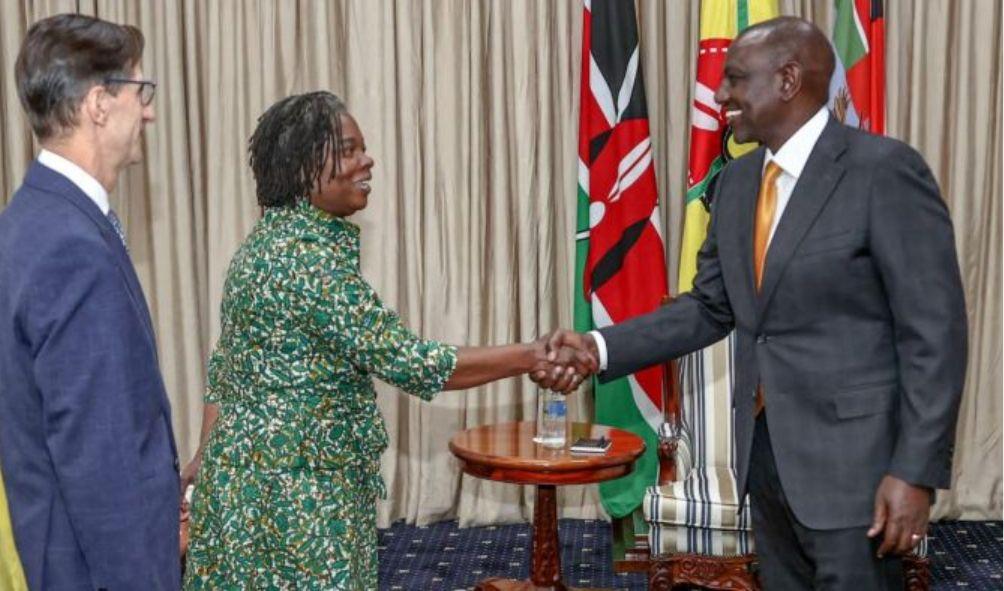World Bank Pushes Ruto To Give Kenyans Cah To Uplift Economy
The 2023 Kenya Poverty & Equity Assessment Report from the World Bank, unveiled on Thursday, presented three suggestions aimed at decreasing poverty levels within the nation.
As per the report, there was a decrease in the rate initially, but following the 2020 pandemic, the disparity between wealthy and impoverished individuals expanded.
The World Bank cautioned against employing subsidies to support farmers, a significant part of President William Ruto’s priorities. Instead, the global institution recommended prioritizing investments in crucial infrastructure, research, and development.
ALSO READ:
- “Two Groups, One Agenda”: Gachagua Accuses Raila of Secret Political Deals
- Exclusive: Ida Odinga’s 75th Birthday Party in Karen (Photos)
- FKF President Discloses Exact Amount Paid to Harambee Stars Players
- Gachagua’s Ally Senator John Methu Admits Ruto Might Win 2027 Elections
- Maraga Explains Why He Hasn’t Campaigned in Kisii Despite 2027 Bid
Furthermore, the World Bank proposed substituting input subsidies with a cash voucher of equal value, aiming to empower impoverished households to make more informed choices regarding agricultural practices.
“Kenya’s economic growth has the potential to pull millions more out of poverty, even in challenging economic contexts. An inclusive growth strategy that boosts economic opportunity and productivity among the poorest, while maintaining focus on longer-term development objectives, will help realize that potential.,” read part of the report.
“Domestic fertilizer prices are subject to global conditions, and the promotion of local (or within Africa) production of fertilizer potentially offers a less distortionary way to make this input affordable,” read the report in parts.
Ruto received guidance to link the impoverished with economic advancement, enhance the ability of households to withstand harsh weather impacts and utilize fiscal measures to aid in reducing poverty.
Connect the poor to economic growth
The World Bank suggests that Kenya ought to utilize agricultural sector policies to enhance the capability of impoverished rural households to expand their income avenues through cultivation and broadening their sources of earnings.
Furthermore, Kenya ought to depend on the growth of small and medium-sized enterprises (SMEs) to access and assist the urban impoverished, self-employed individuals, and household businesses by offering training and viable financial support.
“Loans and grants of sufficiently large sizes can be effective in reducing reliance on own-source funding and raising earnings,” the report read in parts.
Strengthen households’ resilience to adverse weather shocks
The government was encouraged to address the impacts of Climate Change to secure continued robust economic growth that leads to inclusive development.
The World Bank expressed concern that the arid regions in Kenya, despite initially having the highest poverty rates, suffer the most severe detrimental effects of Climate Change on poverty.
“Strengthening resilience needs to reflect spatial differences to climate risk exposure and vulnerability,” read part of the report.
The international financial institution also recommended that Kenya construct infrastructure resistant to climate impacts, allocate funds towards thorough and equitable management of disasters, and establish inclusive governing bodies.
Leverage fiscal policy to support poverty reduction objectives
The World Bank recommended that Kenya broaden its social aid initiatives, like hunger safety nets, to support disadvantaged households more effectively.
Furthermore, Kenya received praise for its efforts in the education realm, particularly for providing free schooling to underprivileged individuals, thereby enhancing its human resources.
World Bank Pushes Ruto To Give Kenyans Cah To Uplift Economy
